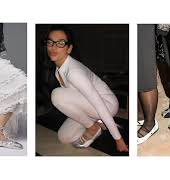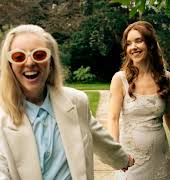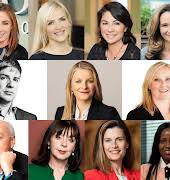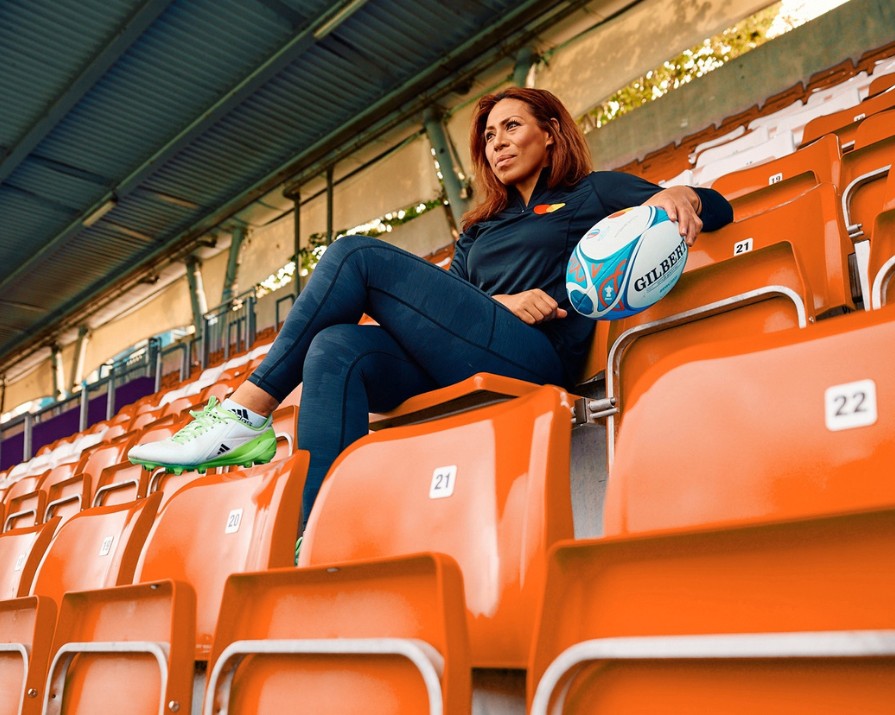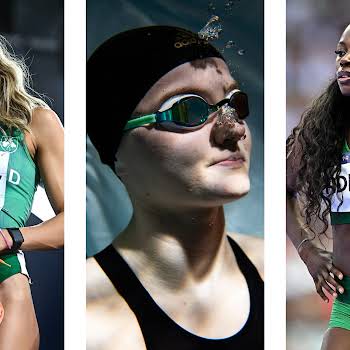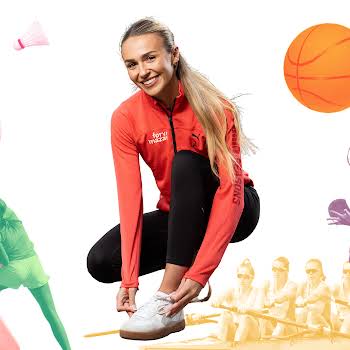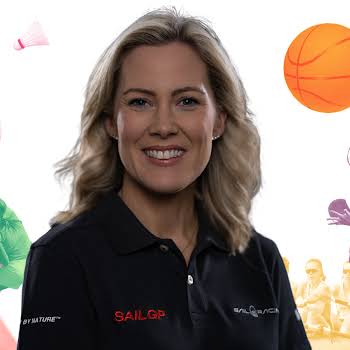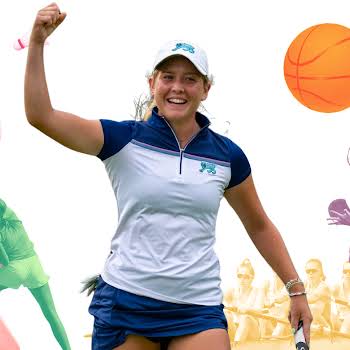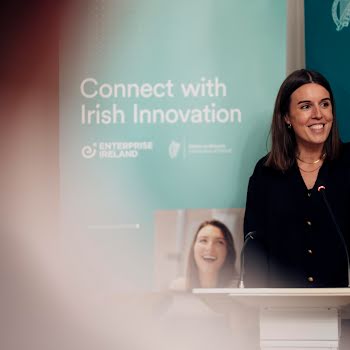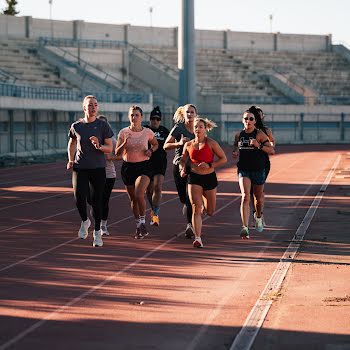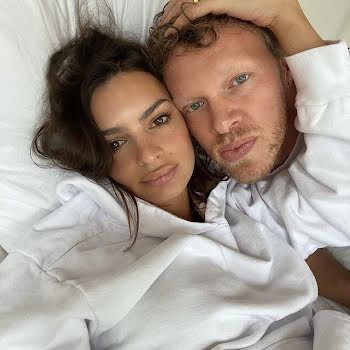Women in Sport: Former professional rugby player and Irish international Sene Naoupu
By Sarah Gill
15th Jan 2024
15th Jan 2024
Here, we chat with Sene Naoupu about everything from her earliest sporting memory to her proudest achievements and aspirations…
Sene Naoupu is a former professional rugby player and Irish international in Sevens, XV’s and Touch. Off the pitch, she has helped lead game-changing national and global strategic projects in women’s rugby, Pasifika rugby, emerging nations, brain health education and mental wellbeing. Most recently, Sene featured in Mastercard’s Future XV squad, a list of pioneers changing the face and future of rugby.
A champion of equal opportunity in sport and business, Sene works with governing bodies, rights holders, broadcast and commercial acquisitions promoting the visibility of women and champions social cause, inclusion and diversity.
Sene is also a New Zealand Rugby World Cup broadcaster, Ireland and UK broadcaster for the Six Nations and was named one of Ireland’s 30 Most Influential Women by the Irish Times and Ireland’s Top 10 Unrelenting Sportswomen.
Here, Sene Naoupu shares some stand-out sporting memories, advice to aspiring sports stars, and explains why sport as the most powerful vehicle for improving health and well-being…
Name: Sene Naoupu
Profession: Former professional rugby player and Irish international
What was your earliest sporting memory?
My earliest memory I can think of is playing backyard cricket, basketball, volleyball and touch rugby with my brother, sisters and cousins when I was about five or six.
How did you become involved in your sport?
I became involved in rugby after watching my brother play the sport for Oamaru Old Boys and North Otago and from there, I wanted to be just like him. I started playing at secondary school when I was 13 years old.
What message would you like to share with young women and girls interested in pursuing a career as an athlete?
You have to dream big, believe in yourself and be fearless as a dream-maker.
What’s your proudest moment so far?
One of my proudest moments was becoming an auntie and using that motivation to go for my dreams of being an international athlete. I also feel blessed to have had the opportunity to captain Ireland on occasion and become a triple rugby international.
Who’s the female athlete you admire the most and why?
It has to be the 23 Grand Slam-winning champion Serena Williams. She’s a generational cultural icon, and I admire her drive for equality, diversity, and inclusion in sports and business. She represents what’s possible for minorities, girls and women in sport, and athlete mothers returning to elite sport. In rugby circles, New Zealand’s Sarah Hirini and Ireland’s Claire Molloy are among many female athletes I admire.
What’s your favourite sporting memory?
I would say having my sister and family from New Zealand over to Ireland to watch me play my last ever rugby match is my favourite sporting memory. It is especially the case with my sister who was my original rugby teammate, until she contracted meningococcal meningitis. It took her a few years to speak, read, write, walk and function fully again. She thankfully made a full recovery, but to play my last game with her watching was everything.
Do you think there is still a stigma around women in sport?
I would say there is a stigma around women in sport but we are seeing progress. We still constantly sell women’s sport to new audiences, but the record-breaking World Cups in women’s rugby , football and cricket in the last 18 months have helped accelerate the growth of women’s sport, the visibility of women in sport, and normalise women playing sport.
What is the biggest barrier to driving visibility in women’s sport?
The biggest barrier to driving visibility in women’s sport would be the funding and resource support. That’s why gender-specific research that informs governance mandated towards the direction of growing girls and women’s sport is essential to align, develop and deliver visibility for women’s sport. I think national sporting bodies are recognising the business sense to invest in high-performing domestic competitions and pathways, commercial programs, broadcast deals and athlete development programs which underpin its women’s programs. In doing so, navigating rights holder windows that maximise exposure and attention for fans across domestic, regional and global competition windows is key to driving visibility in women’s sport.
What’s the biggest stigma or preconception that exists in women’s sport?
The biggest preconception is that women’s sport is not as exciting to watch as the men’s games. The women’s Rugby World Cup in New Zealand in 2022, particularly the semis and finals, debunked that preconception. The total time of ball play was higher than any men’s game of that season and arguably, some of the most innovative tries rugby fans have ever seen scored from the 22m. People saw how exciting and incredibly attractive, skilful, creative and fast-paced the women’s game was from that tournament.
Why is sport such an integral part of the community, on a club, local, national and personal level?
Sport is the most powerful vehicle for improving health and well-being, empowerment, sense of belonging, values like respect, diversity and inclusion, and facilitating cultural change for good. It’s also great fun being involved in sport on or off the pitch. That’s why I love how Mastercard’s Future of Rugby report identified five ways rugby is positively impacting society as a force for good by focusing on inclusivity, health, education, the fan experience, and sustainability.
If I wasn’t an athlete I would be…
Working in sport business.
My favourite pre-competition or pregame meal is…
Spaghetti bolognese.
My pre-game playlist includes…
I had a mixture of old school, new school tunes, a bit of Metalingus and Dropkick Murphys.
My daily routine is…
Wake up early, meditate, coffee, breakfast, day planner, work, family and friends, exercise, do housework and prepare for the next day. I still enjoy training to stay fit and healthy, as I feel it helps to clear the mind and connect with different social circles if I’m in group fitness classes.
My biggest sporting goal is…
Recently achieving triple international and triple Leinster wins. I am also hoping to complete a marathon this year for a couple of charities, one is called My Mind.
Sports brands I love…
Adidas and I’ve been incredibly grateful to work with them on projects that promote girls and women in sport.
What’s been your biggest splurge to celebrate a win?
I don’t really splurge on celebrating wins to be honest, but sending mum extra pocket money is always a good feeling!
How do you mind your mental health?
The key pillars of what I do to mind my mental health are based on my faith, family, being around my people, being involved in sport and listening to music. I am also grateful for access to professional support and therapy through Rugby Players Ireland.
My three desert island beauty products are…
Sculpted by Aimee tinted glow with SPF and insect repellent, sportskin gel and Dermalogica face care.
How much sleep do you need every night?
I can function on four to five hours, but need eight hours to perform to my best.
Confidence to me is..
Being unapologetically myself.
How do you get over a bad performance?
I would review performance indicators I had set out and measure against what did well, what I need to work on and how we did as a team. Normally, I would take 24 hours to reflect on the performance and ask the same questions. Then simplify what to work on as focus areas for the week.
This article was originally published in October 2023.

